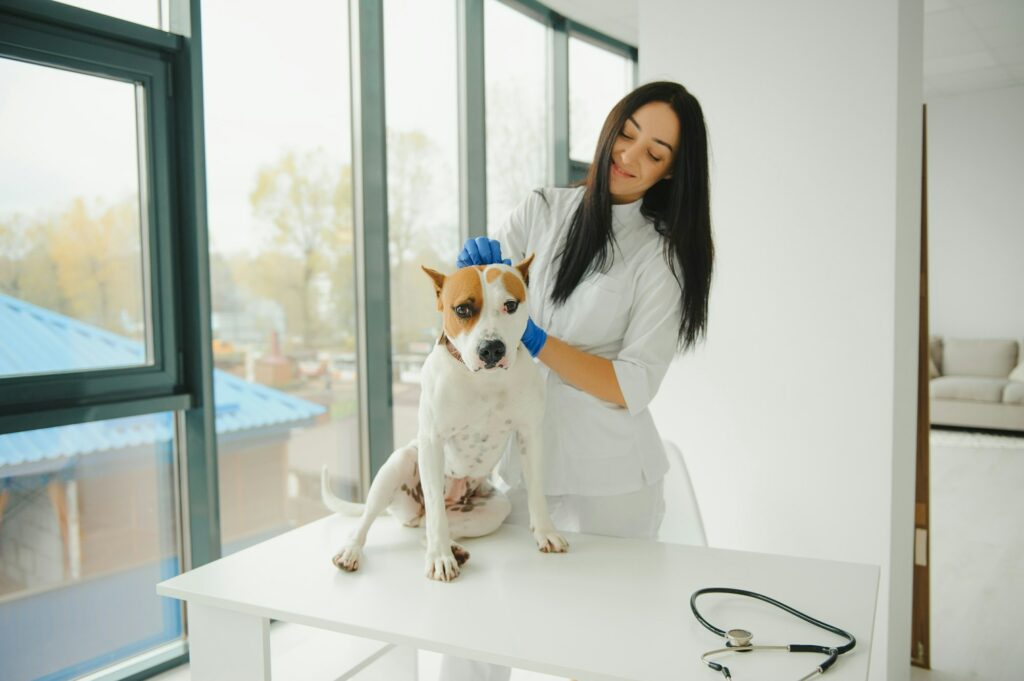Seeing your beloved four-legged companion suffer from seasonal allergies is heartbreaking and leaves you feeling helpless. The signs are hard to miss – never-ending scratching, bouts of sneezing, and watery eyes. Such symptoms can significantly disrupt your dog’s everyday life, making them uncomfortable and miserable. Consider this your comprehensive guide to understanding and effectively managing your dog’s allergies. This blog serves as a detailed roadmap, filled with practical steps and tips, to help you alleviate your dog’s discomfort and significantly enhance their quality of life during challenging allergy seasons.
Signs Your Dog is Suffering from Allergies
Understanding whether your dog is suffering from allergies can often be tricky, as some symptoms may not be all that obvious. However, there are certain signs you can look out for that may indicate your dog is dealing with allergies. These symptoms can range from mild to severe, and recognizing them early can help you seek appropriate treatment promptly.
Respiratory Issues
Respiratory issues can often be a clear indication of allergies in dogs. If your dog is frequently coughing, wheezing, or sneezing, this could mean they are reacting to allergens. Sometimes, a runny nose or constant congestion can also be a sign. Allergens can cause inflammation in the airways, leading your dog to have difficulty breathing. This can be distressing for your dog, so it’s important to consult your vet if you notice these symptoms.
Scratching, Biting, or Inflamed Skin

A key indicator that your dog’s allergies are flaring up is persistent scratching, biting, or inflamed skin. These behaviors often result from the irritation caused by allergens on your dog’s skin, leading to a cycle of discomfort that manifests as frequent scratching or biting. Signs such as redness, swelling, or even sores might be visible on your dog’s skin as they attempt to soothe the itchiness.
This situation can be incredibly distressing for your pet and, if left unattended, may escalate into secondary skin infections. Therefore, it’s essential to consult with your vet if you observe these symptoms to diagnose and manage your dog’s allergies accurately, providing them with much-needed relief.
Chronic Ear Infections
Chronic ear infections are another sign that your dog might suffer from allergies. The allergies can cause inflammation in your dog’s ear canals and lead to frequent infections. Signs of ear infections may include your dog shaking their head, scratching at their ears, or an unusual amount of wax or discharge from the ears. The ears may also appear red and inflamed.
Incessant Paw Licking
One of the more noticeable signs of your dog’s allergies could be incessant paw licking. Dogs often lick their paws as a way to soothe irritation or discomfort. However, if you notice your dog constantly licking their paws more than usual, it might be due to an allergic reaction. Allergens can often cause inflammation and itching, leading your dog to lick their paws for relief. This could also lead to redness and possible sores on their paws.
Excessive Shedding
Excessive shedding is another potential sign that your dog’s allergies are acting up. Dogs naturally shed to some extent, but if you notice an unusual increase in the amount of fur they’re losing, it could be a response to allergens. Other symptoms, such as skin irritation or inflammation, often accompany this excessive shedding. The skin can become very sensitive due to allergies, causing more fur to shed than usual.
Scooting on Their Bum
If your dog is frequently scooting on their bum or rubbing their anal glands, this can be a sign that their allergies are flaring up. The allergens can cause irritation and inflammation around the anal area, making your dog feel uncomfortable. This behavior is often their way of trying to alleviate the itchiness or discomfort. It’s important to watch out for this sign, as continued scooting or rubbing can lead to sores or other complications. As always, consult your vet if you notice such behaviors to ensure proper diagnosis and treatment.
How to Help Combat Your Dog’s Allergies
Now that you understand some common signs that your dog’s allergies are acting up knowing how to combat them is crucial. Effective management of your dog’s allergies requires a multifaceted approach involving routine and environmental changes, along with professional veterinary guidance. The following strategies can help alleviate your dog’s discomfort and improve their overall health during allergy season.
Change Your Daily Walk Routine
One effective way to alleviate your dog’s allergy symptoms is by modifying your daily walk routine. Allergens like pollen and mold spores are often more prevalent during certain times of the day, usually in the early morning and late afternoon. Adjusting your walk schedule to avoid these peak times can reduce your dog’s exposure to such allergens.

Moreover, try to choose walking routes with minimal vegetation or those less likely to have allergens. After each walk, make sure to wipe down your dog’s paws and coat to remove any allergens that may have latched on. These simple changes can make a big difference in managing your dog’s allergies.
Don’t Ignore Your Dog’s Allergies
Ignoring your dog’s allergies can lead to worsening symptoms and a lower quality of life for your pet. Untreated allergies can cause severe skin infections, respiratory issues, and other health complications. Furthermore, allergies can cause your dog a great deal of discomfort and distress. Therefore, it’s crucial to take your dog’s allergies seriously and seek veterinary care as soon as you notice symptoms. Promptly addressing the issue can help alleviate your dog’s discomfort and prevent further complications.
Give Them More Baths
Regularly bathing your dog can significantly help manage their allergies. Baths can help wash off allergens from your dog’s skin and fur, reducing irritation and itchiness. Additionally, using hypoallergenic or medicated shampoos recommended by your vet can further soothe and protect your dog’s skin.
Pay Attention to Your Air Filters
Maintaining clean air in your home can play a significant role in managing your dog’s allergies. Changing your air filters can help reduce the amount of allergens that circulate in your home, such as dust, dander, and pollen, thereby potentially reducing your dog’s allergic reactions. In addition to changing your air filters, keeping your home clean is essential. Regular vacuuming, dusting, and washing of your dog’s bedding can help keep allergens at bay. These simple yet effective steps can significantly contribute to creating an allergen-free environment for your dog, helping to alleviate their symptoms and enhance their comfort.
Supplement Their Diet to Combat Your Dog’s Allergies
Supplementing your dog’s diet can be a beneficial strategy in managing their allergies. Certain nutrients can help strengthen your dog’s immune system and reduce inflammation, which can, in turn, help alleviate allergic reactions. For example, Omega-3 fatty acids, commonly found in fish oil, have anti-inflammatory properties that can help soothe your dog’s irritated skin. Probiotics can also support gut health, which is crucial for their overall immune function. However, it’s essential to consult your vet before introducing new supplements into your dog’s diet to ensure they’re safe and suitable for your pet.
Seek Professional Help

If your dog’s allergies persist or worsen, seeking professional help is highly recommended. Veterinarians can diagnose the specific allergens causing the reaction and suggest a tailored treatment plan for your dog. This could include prescription medications, allergy shots, or even a change in diet. Consulting with an expert gives you peace of mind and ensures your dog receives the best possible care for their condition.
What to do if Your Dog’s Allergies are Extremely Severe
Managing your dog’s allergies can be a challenging task, but with vigilance and a proactive approach, it is possible. From recognizing the signs of allergies to taking the necessary steps to alleviate their symptoms, every effort counts. Remember, it’s always best to consult with a professional when dealing with your dog’s health. With the proper care and attention, your furry friend can enjoy a comfortable, happy life, even during allergy season.
